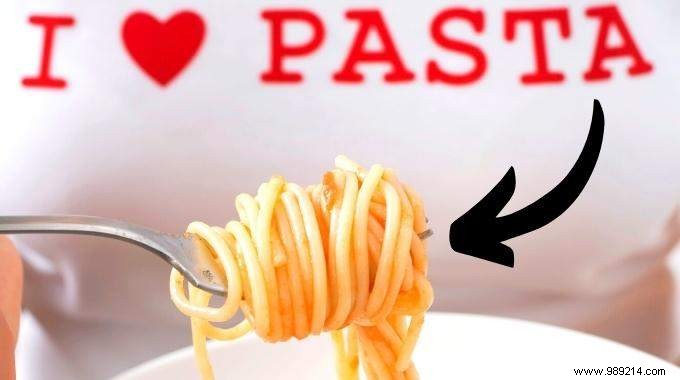
Do you like pasta? Me too, I love !
In addition to being economical, they have little-known benefits.
Despite their bad reputations, spaghetti and pasta shells are actually excellent for your health!
Yes Yes. I assure you; my nutritionist told me.
They keep you in shape and, contrary to popular belief, they are a real slimming ally!
Their nutritional values are essential to our organism and very good for our body in general.
It's not about eating it morning, noon and night, but you can eat it regularly without worry.
Discover 7 good reasons to eat pasta regularly even when you are on a diet . Watch:

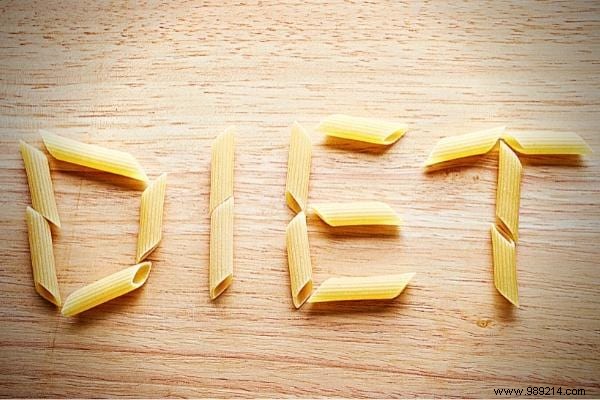
In case you're wondering if pasta is fattening, you're wrong!
As I told you, it is a mistake to banish this starch from our slimming diets.
Pasta is actually low in calories (120 calories per 100g cooked).
Various studies explain it very well; starches do not make you gain pounds if you do not abuse them.
This is even confirmed by the very serious IRCCS in Italy.
This institute has observed that consuming this food in moderation leads to a low body mass index.
And yes, Italians are on average less corpulent than us, even if they eat more pasta!
As is often the case, it's all a question of dosage... and above all of fresh cream.
It's sure that if you put a lot of it in the dish, it makes you fat.
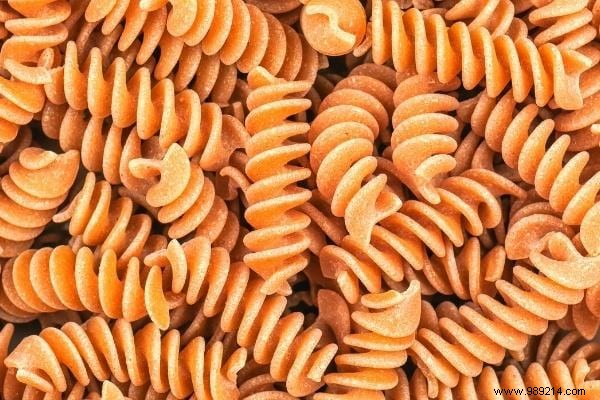
Pasta is recognized as a food that perfectly regulates our transit.
Do you know why?
Because they are rich in dietary fiber and that is very important for our body.
Especially those with whole wheat which have 6.6 g of fiber per 100 g.
Some varieties of wheat such as spelled even have 11 g per 100 g.
Dietary fibers therefore play a major role in our body.
It regulates our intestinal transit.
But that's not all!
The fibers also prevent cardiovascular diseases and help lower cholesterol levels.
If you are not convinced to eat pasta after this...
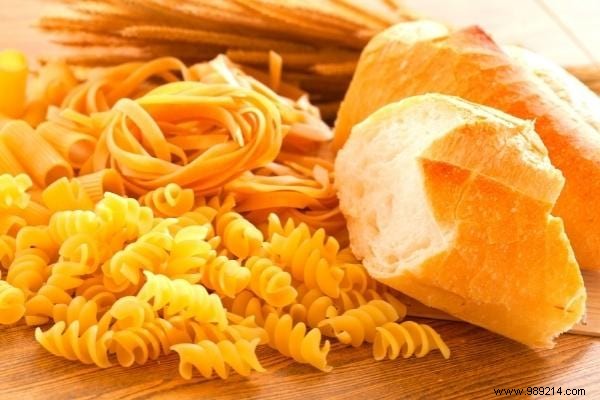
Because it is high in carbohydrates, pasta has a low glycemic index.
That is, the blood glucose level remains quite low even after consuming it.
As opposed to fast sugars, slow sugars avoid an excessive rise in insulin.
And insulin is a hormone that greatly promotes fat storage.
Do you see where I'm coming from?
The more pasta you eat, the more slow sugars you eat, and the less room there is for fast sugars.
It is therefore ultimately less fat that accumulates in the body.

Thanks to its slow sugars, pasta keeps you full for several hours after eating.
This is why athletes consume it before their sessions.
With them, no more fear of having a little craving.
They give the energy you need.
And then, eating pasta leaves little room for snacking between meals.
They give an important feeling of satiety.
It allows you to no longer crack on chocolate or other fatty and sugary foods in front of the TV.

As pasta keeps you going for a long time, it saves you from feeling tired during the day.
Thanks to carbohydrates and dietary fiber, pasta gives you long-lasting energy.
They are a real fuel for our body!
Magnesium, vitamin B, proteins, fibres...
They are full of very useful nutrients that provide the necessary energy to our body.

Did you know that eating pasta helps fight insomnia?
Amazing isn't it?
Contrary to popular belief, eating pasta in the evening is possible.
Studies prove that pasta promotes good sleep and reduces stress.
They help in the absorption of tryptophan which releases serotonin and melatonin.
Do you know these 2 hormones?
They simply regulate our mood and our sleep.
80 g of pasta (without sauce) in the evening is enough to make a big sleep.
Again, it's all about dosage. Just don't abuse it.
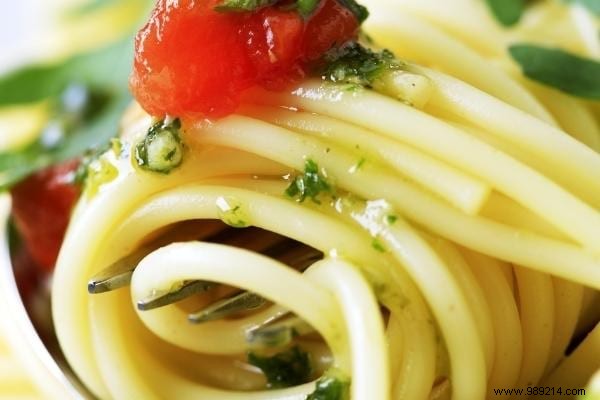
Honestly I don't know if in my life I've ever met someone who didn't like pasta.
It must be said that it goes with everything, is easy to prepare and simply super good!
When we don't have much time to cook, they help us out as needed.
And then it's still better than industrial ready meals full of fats and sugars.
With a drizzle of olive oil or accompanied by sauces, they delight the palate.
You can even make them in a salad! So combine business with pleasure.
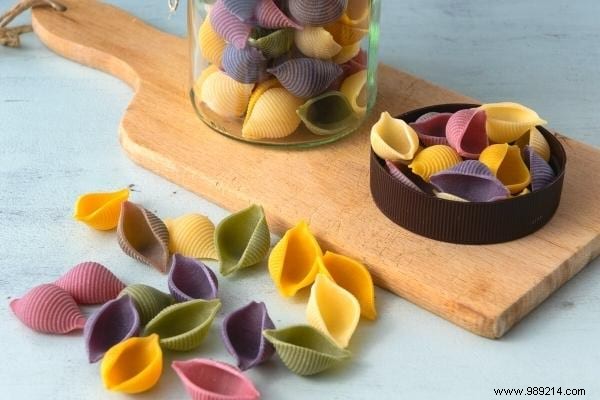
The pasta is madeonly with natural products.
A mixture of durum wheat, water, and sometimes eggs.
It is not for nothing that the French eat an average of 10 kg per year.
We are still far from the Italians who eat 28 kg but all the same!
When they are colored, it is not by artificial dyes.
These are spices, vegetables or fish extracts.
If they are red, they are mixed with tomato or beetroot.
Vertes is with spinach or basil.
Black, squid ink. etc., etc.
And as I told you, they are full of vitamins and minerals, especially wholemeal pasta:
Vitamins B1 and B3 for carbohydrates.
Vitamin B9 for red blood cells.
Rich in magnesium for the nervous system and phosphorus for the bones.
The taste of white pasta is not the same as that of whole wheat pasta (whether with or without gluten).
Same for color; whole wheat pasta is darker.
It's the flour that makes the difference.
Wholemeal flour contains the entire grain of wheat (germ, bran and seed).
For white flour, only the ground seed is kept.
In terms of calories, there is very little difference.
But as I told you, the nutritional values of wholemeal pasta are much higher.
Wholemeal pasta contains more dietary fiber and the benefits are greater.
They reinforce the feeling of satiety, further limit the absorption of cholesterol, reduce the risk of cardiovascular disease.
And still for our athletes, they have more slow sugars.
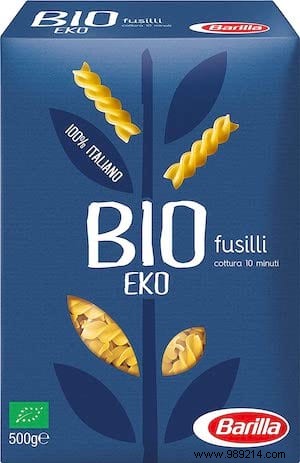
Obviously not all pasta is created equal!
The quality of the wheat is very important, but that's not all.
It is always better to choose organic pasta if possible.
And it's even more true if you eat whole pasta.
Why?
Because pesticides are more easily found in whole wheat.
Think about it the next time you go to the supermarket...
For my part, I like the Fusilli Bio from Barilla.